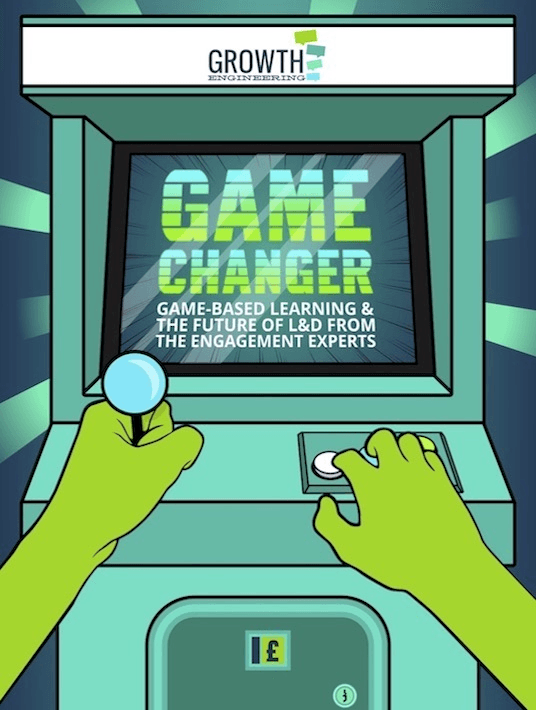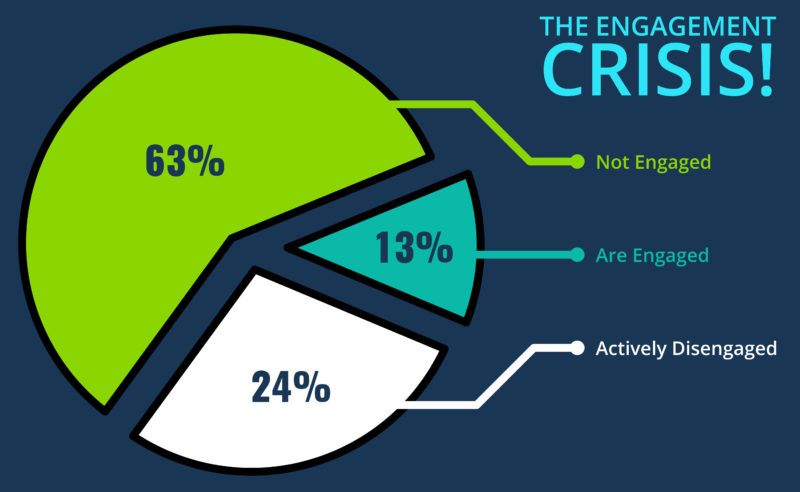Whom Are Corporate Learning Games For?
Engagement is the measure of how committed an employee is to their job. Lack of engagement is one of the biggest challenges faced by all organisations today. Even though engaged employees perform 202% better than disengaged employees, 71% of employees are not fully engaged.

Despite the evidence, organisations have been slow to improve engagement in almost every area of business. The good news is that, when it comes to Learning and Development, a poor engagement is an easy problem to solve with the power of corporate learning games!
Learning games are the key to unlocking maximum engagement from your training content. Instead of subjecting your learners to passive eLearning, learning games demand interaction at every point.
Despite the proven effectiveness of corporate learning games, there is still some resistance when it comes to trying something new.
Learning Games Aren’t For Me (And Other Common Objections)
“I don’t want my employees wasting time on games.”
When you’re paying employees for their time, you naturally want to get the best return you can. Many managers (and even learners) see time spent on training as time that isn’t spent making that return. It’s understandable that they might want to reduce training time as much as possible.
For these people, the idea that employees might be so engaged with their training that they can’t tear themselves away from it seems counter-productive.
However, focusing on the short term denies the possibility of the real, long-term gains that can come from an engaging training programme.
Learning games are, by their nature, even more engaging than traditional training methods and employees are likely to spend more time learning what they need. This isn’t a bad thing – since learners are more engaged, the rate of retention is much higher and the training is more effective. Better trained employees are more capable of doing their jobs and helping the business thrive.
Whatever your misgiving with learning games might be, it’s hard to deny that they address the biggest challenge facing L&D today – the engagement crisis. Gallup polls found that just 13% of employees worldwide are engaged. A worrying 63% are not engaged at all and an even more concerning 24% are actively disengaged. These disengaged employees don’t just slow your organisational growth; they might actively seek to reverse it.

Even if you do decide that learning games won’t work for you, your number one priority should be to engage your learners with their training by any means necessary.
Whom Are Learning Games For?
Learning games have been popular in schools for decades, but the potential of game-based learning is gradually being realised by the wider Learning and Development sphere. As they wake up to the massive problems with learner engagement, training professionals have been asking themselves where it all went wrong.
When did learning stop being fun?
The answer is simple: learning lost its lustre when the focus was taken off of the people taking the training. Now that the truth is out, there has never been a better time to be a learner. Let’s take a look at the types of people who are reaping the benefits.
1. New Staff
What would you think if your first experience in a new job was being locked in a cold room with an ancient TV/VCR combo, forced to watch a poorly produced induction video? When you’re welcoming newbies to your organisation, you want to give them the best first impression possible. Nobody wants to be thought of as boring and organisations are no different.
Using learning games is a great way to conduct a successful onboarding programme. They give your new starters all the information they need to get off on the right foot, but that’s not all. Using learning games give you a chance to show your new recruits that your company isn’t one of those dull, stuffy companies – it’s a place of enthusiasm, excitement, and fun!
2. People In High-Risk Jobs
It’s not all fun and frolics though – some learning games are designed to provide a safe environment to practice skills needed for high-risk jobs.
Every time you step aboard a flight, you can bet that the pilot didn’t practice in an actual aeroplane. Flight simulators are, in essence, learning games and they’ve been around since the First World War! Pilots-in-training use flight simulators for the simple reason that aeroplanes don’t grow on trees and mistakes can mean the difference between life and death.
Your bottom line is arguably just as important and no company can afford to lose revenue on account of mistakes made by trainees. Many retailers are creating learning games that replicate a sales environment. This lets employees practice various processes without risking a costly mistake.
3. People Who Don’t Stop
The importance of mobile in online learning is also becoming increasingly apparent. For learners in busy jobs, sometimes their only opportunity to take training is on the commute to work. In 2016, no legitimate online learning solution would dare to neglect a mobile offering.
The challenge here is the same as that of non-mobile solutions – how can your learning material (mobile or otherwise) compete with the engagement-factory that is the rest of the internet?
Learning games are particularly effective on mobile devices because they do the job of providing training, whilst offering the same level of engagement as Angry Birds or Candy Crush Saga.
4. Generation Y
The problem of learner engagement has only gotten more serious as the workforce has been populated with the next generation of young employees. These children of the 80s and 90s have grown up with instantaneous enjoyment from mobile phones and the internet.
Although that’s not necessarily a bad thing, it does mean that attention spans have gotten shorter and demands for engaging media have taken the forefront. The unfortunate truth is that they won’t give dull eLearning a second glance and this is precisely why engaging learning solutions receive much better results.
As Millennials take over the job market, it’s becoming a greater priority to create training programmes that are tailored for them.
If you want to know why learning games work, check some fascinating case studies of game-based learning, and get great advice on implementing learning games, download the eBook Game Changer: Game-Based Learning And The Future Of L&D From The Engagement Experts.


